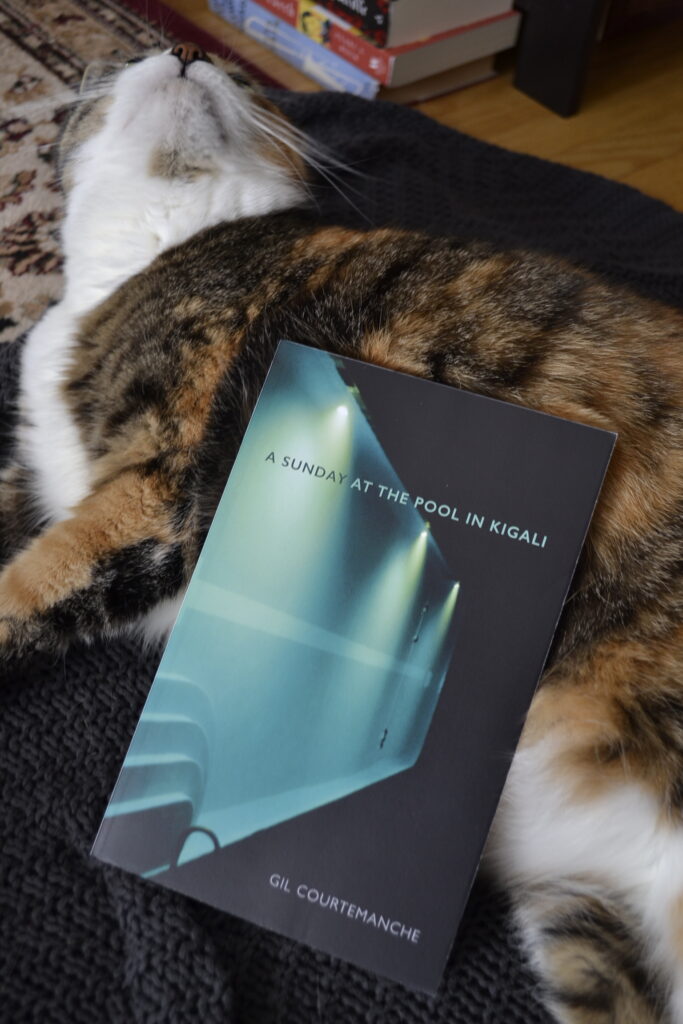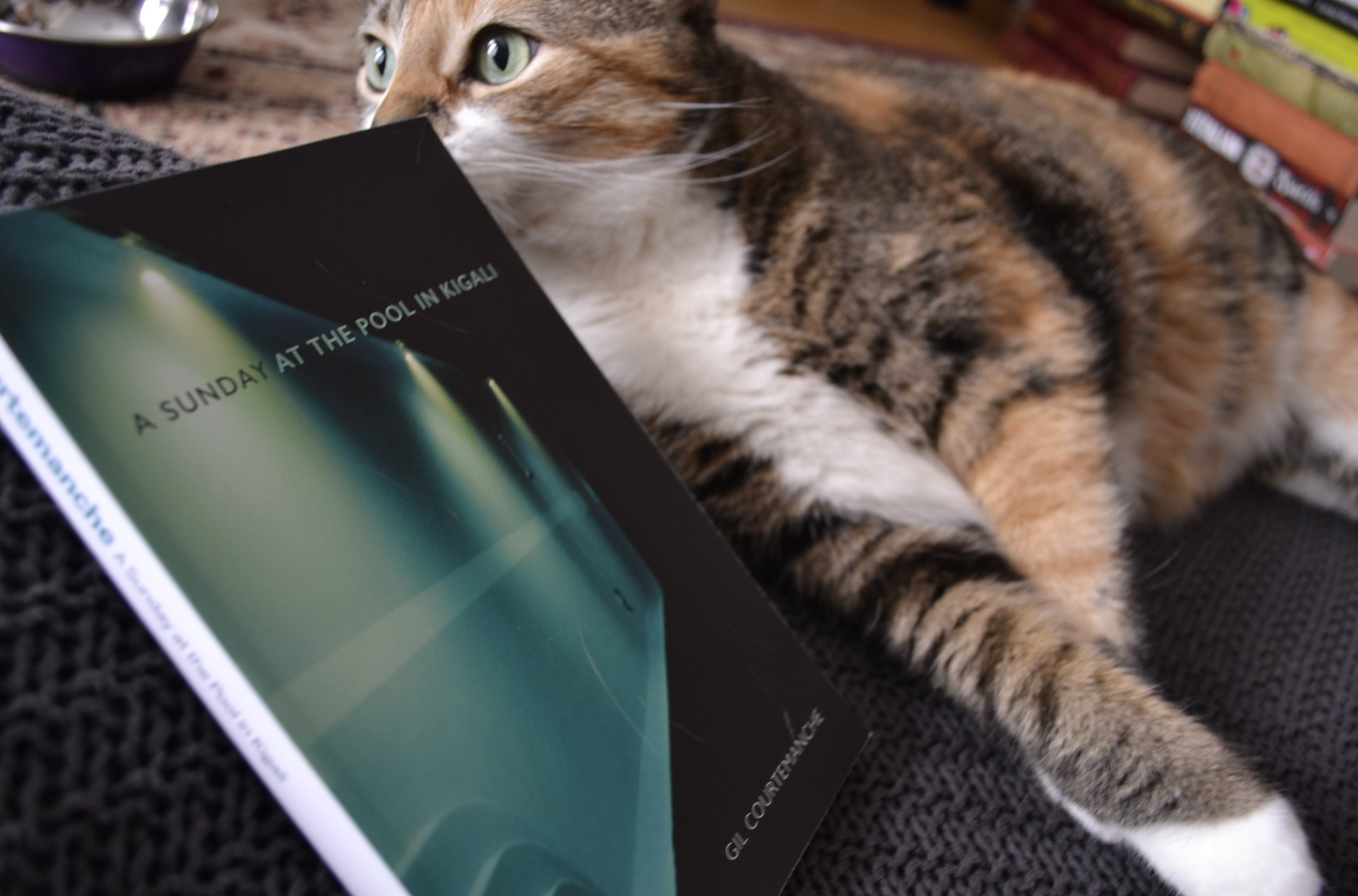A Series of Storms
Last week we were preparing for a storm on Tuesday and this week we’re preparing for another storm over the weekend. Watching for snowfall warnings and travel advisories is an essential part of a Canadian winter but, like many, I was unprepared for how quickly this winter suddenly became winter. Last month the weather was so mild, it was actually saddening, but I didn’t expect for the wind and snow and blistering cold to descend quite so fast.
This week’s storm was made worse by trying to get groceries in the middle of a nest of deadlines and carving out time to do the few things we have to do to prepare for an icy driveway and wind. I’m always grateful we work from home, because I can’t quite imagine what it must be like to try to do these tasks and travel back and forth to an office. That being said, sometimes I do miss the apartment’s lovely lack of snow to be shovelled and hatches to be battened down.
If it’s snowing in your part of the world, I wish you a warm and toasty week indoors at least.
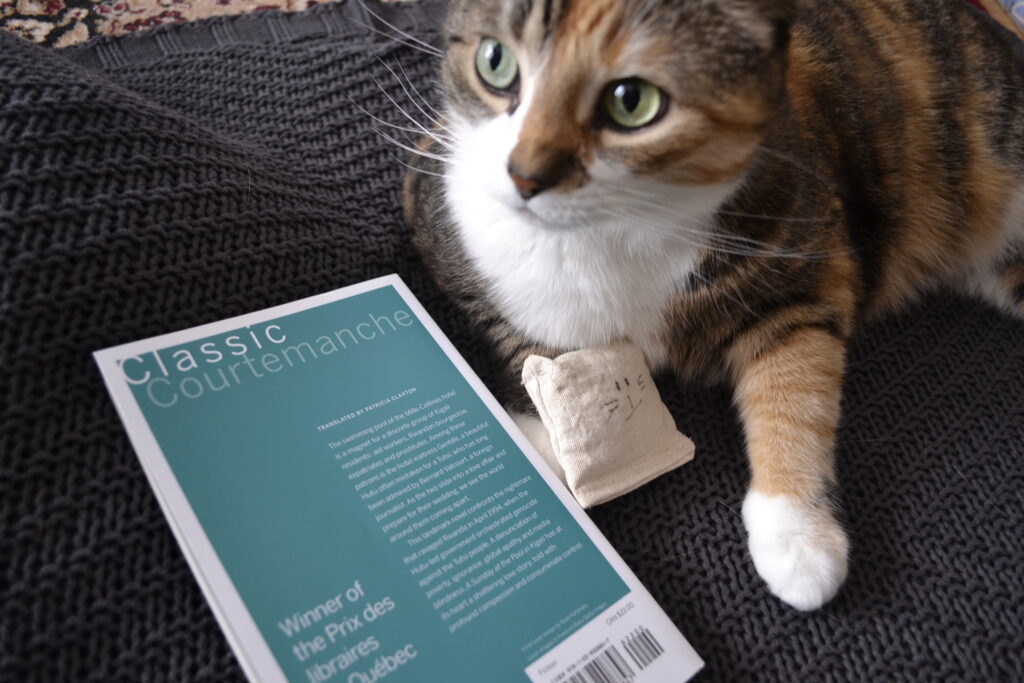
The Cover and the Book
No doubt about it, the Penguin Modern Classics edition of Gil Courtemanche’s A Sunday at the Pool in Kigali is beautiful. The cover is striking, and I love the typeset and the book design. I was drawn to all of those things and to the well-written summary on the back. The Penguin Modern Classics imprint is also one I relatively trust to reprint books that have literary and historical value.
I hate to say it, but Penguin really let me down this time.
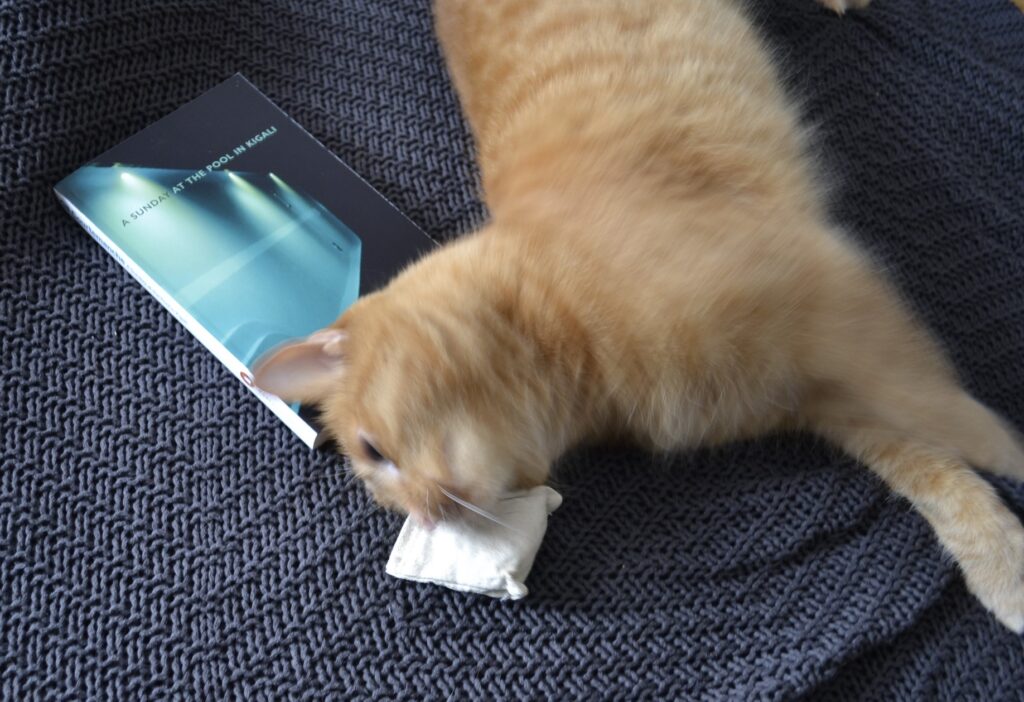
A Sunday at the Pool in Kigali (Un dimanche à la piscine à Kigali) focusses on a group of mostly foreign officials and journalists that are residing at a hotel in Kigali and gathering around the pool. They are aware that some kind of catastrophe is coming and lamenting the lack of care that the world has shown when it comes to Africa in general and Rwanda in specific — even though a lot of the conflicts in the country are due to colonialism and its aftermath.
I have an interest in books about the Rwandan genocide and the impact it had both at the time and across generations after the massacre. However, this book doesn’t really touch on these things in any real way and it only is concerned with the perspective of a white, foreign filmmaker. Everything falls flat in the wake of that glaring limitation.
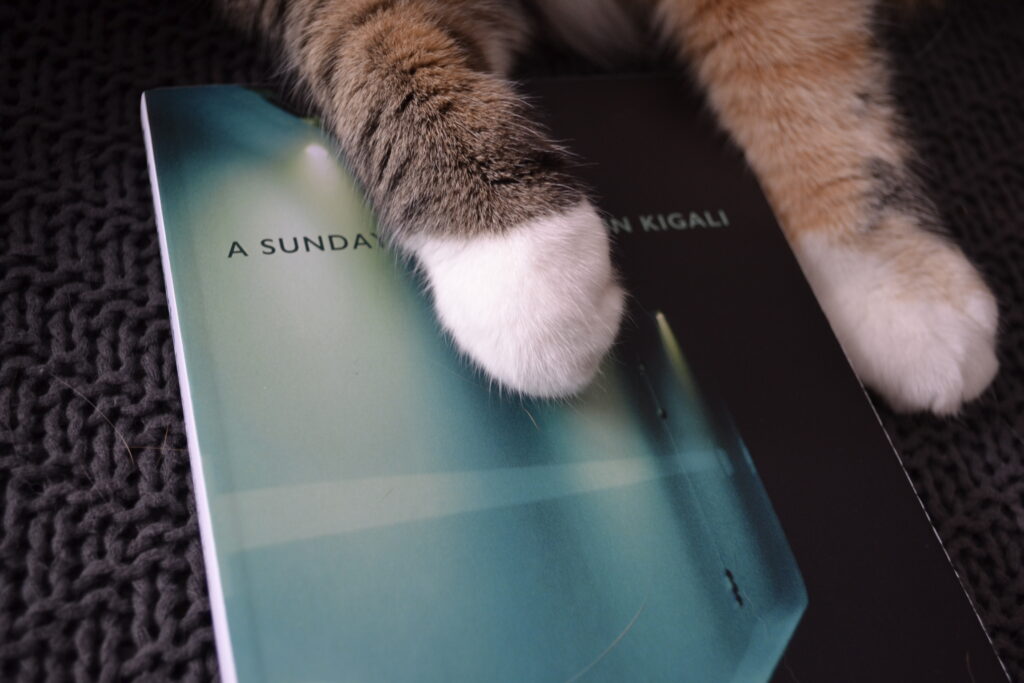
A Limited Perspective
The perspective this book is written in is jarringly dated. I had to continually remind myself that this book is only twenty years old, not fifty or seventy. What created that effect is how racist and misogynist it is. Rwandan characters are continually written in a very condescending and patronizing way. They are treated as childish, unintelligent, and with a broad variety of stereotypical cardboard personalities. Women are infantilized and objectified. For a novel that is supposed to be a love story, Gentille (the love interest) is treated only as a collection of parts. There are multiple, gratuitous descriptions of her breasts and legs. She is not listened to. She is treated and referred to as being a child despite the fact that she is a grown woman. When she loses her breasts, she is treated like she cannot be a woman any longer and is then useless — an attitude which made it hard not to throw this book across the room.
There are definitely instances of transphobia and homophobia as well. I will also warn that there is a lot of violence, including sexual violence, and it is graphic. Ultimately, I found this novel another example of a ‘white saviour’ narrative — where the white characters somehow save the day and supposedly save the non-white characters around them and are somehow loved by all.
I really struggle to find the value of this novel, other than to show me that I need to trust the Penguin classics label less and do more research on novels that have a focus on Africa and historical events that have taken place in Africa.
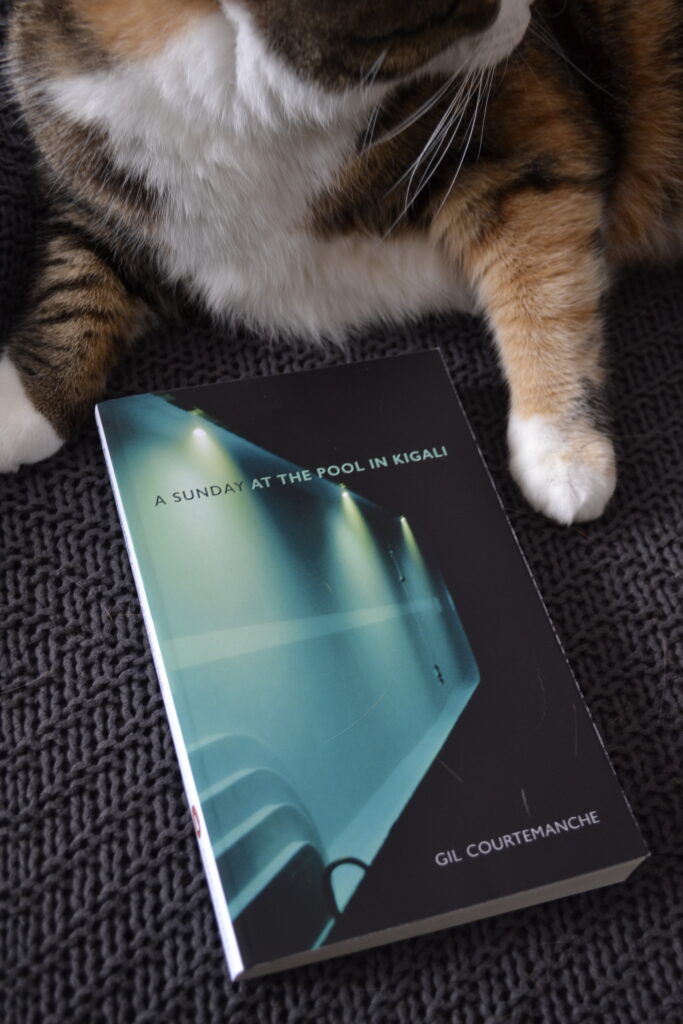
A Recommendation for Further Reading
When I read a book that I do not like, I usually forgo posting about it or reviewing it and instead move on. But in this case, I decided to post about this novel, because I wanted no one else to get blinded by fantastic book design and a great cover.
There are plenty of great books about the Rwandan genocide written by Rwandans who lived through it or by journalists reporting interviews and perspectives from actual victims. Courtemanche’s novel displays a level of ignorance that I find more than disturbing and, if you do decide to read A Sunday at the Pool in Kigali, I hope that you do so with a knowledge that comes from works outside of it and a preparation to grit your teeth at attitudes that stopped being acceptable sometime around 1975. Do not let this be the only book you read about Rwanda, because that would truly be a shame.
Is there something I think Courtemanche did well? The atmosphere of utter nihilism as the characters gather in the hotel and wait for their doom is perhaps the only part of novel that I found compelling. However, it was buried in so many problems that I would never encourage anyone to read it for that reason.
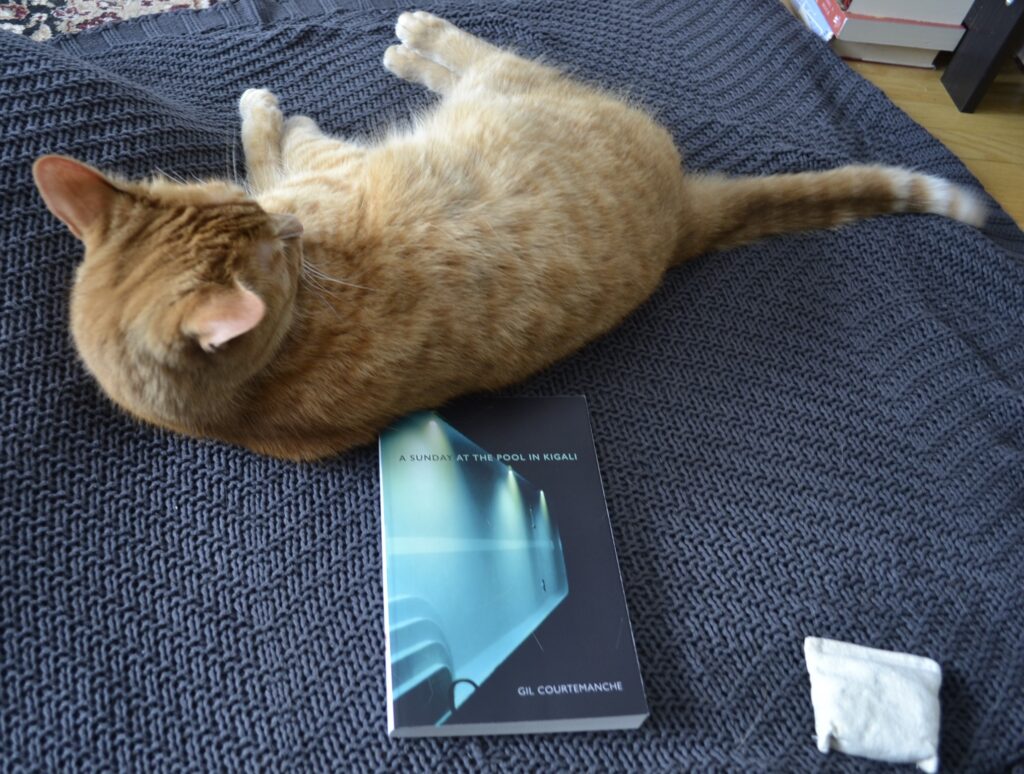
The Wind Howls
The sound of the wind whipping through the trees outside is always so big and so mournful. The cats have slowly gotten used to it after so many years in the house, but there are times when it feels like I’m not quite used to it. When I can hear new facets and qualities in the noises, and it feels like it’s rushing up against the windows, and it draws my attention away from my books and towards the darkness outside.
I’m happy to be in front of our fireplace in a warm, safe, cosy place. And there is one advantage to the noise of the wind: it can make for great atmosphere for movie nights.
